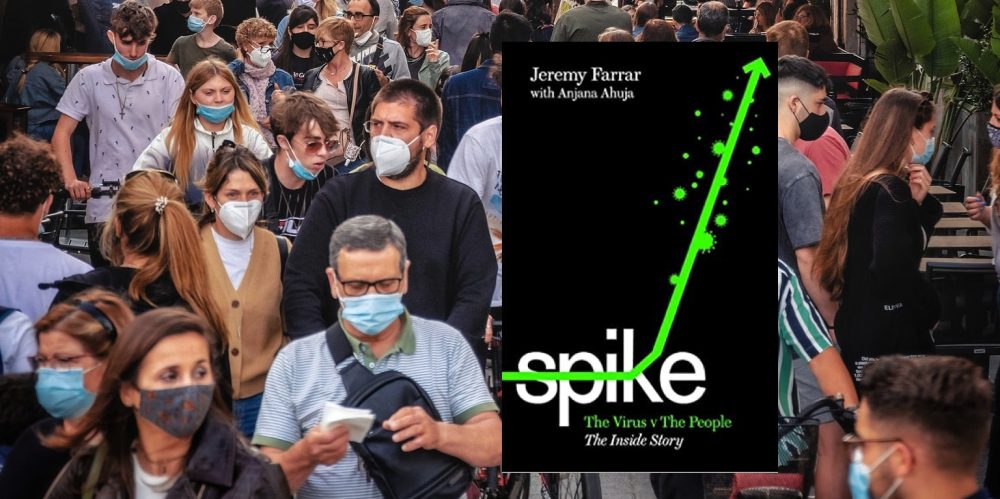Richard Baker is a retired general practitioner and professor emeritus at the University of Leicester.
On BBC radio’s Today programme on 13th March 2020, Patrick Vallance, England’s chief scientific adviser, told his interviewer that the aim was to flatten the coming peak, ‘to build up some kind of herd immunity so more people are immune to this disease’. The next day, I emailed my brothers (all now in the older, more at risk group) with a GP’s perspective – there will be ‘a lot of it about’ so stay at home if you can.
That month we had all been following the unfolding tragedy in Italy’s health service and the inexorable spread of covid-19 into Spain and France, and the words herd immunity were to me a red flag, a sign that our government was out of its depth and that the NHS and its patients were facing a terrible time. Jeremy Farrar, in his account of the first 18 months of the pandemic, confirms there was debate within sections of government about herd immunity although the Scientific Advisory Group (SAGE) and Patrick Vallance himself were firmly opposed to it.
Jeremy Farrar … confirms there was debate within sections of government about herd immunity.
As a member of SAGE and through his contacts with UK government and leaders of WHO, he is well placed to describe the decisions taken from early 2020 until mid- 2021. He does not only describe them, however, but also sometimes powerfully criticises them.
Farrar recounts a series of meetings of SAGE between the 13th and 23rd of March 2020 that discussed the burgeoning first wave data and its attempts to get the government to understand what was happening. He says that it was not until the 23rd March that those in power finally understood the reality of the situation. Debates over herd immunity, failure to appreciate that delaying the lockdown would lead to a longer lockdown, a libertarian world-view, and a suggestion that the public would quickly tire of compliance with the lockdown, all served to create confusion and delay.
The source of the idea that lockdown compliance could not be long maintained remains unknown, but apparently it was not SAGE or its behavioural science advisers.
The shambles of delay was repeated all over again in September and October of 2020, yet on this occasion the excuse that we had no experience of how to combat the pandemic could not apply. The consequence of these delays has been many thousands of avoidable deaths, amounting to the most deadly failure of government in our life-times.
The book is one of the first to analyse the failures of our response to the pandemic and seek lessons for the future, the assistance of Anjana Ahuja being evident in the readable and engaging text. A public inquiry has been promised, but Farrar says it is a disgrace that it will not start until 2022.
The experience of the frontline of intensive care units, hospital wards and disrupted primary care are not included, this is the story of central decision-making. Other publications will eventually record care in hospitals, care homes and communities, but for insight into the UK’s response and where it went wrong, Farrar’s account is both timely and authoritative.
Future pandemics are inevitable.
The second is that future pandemics are inevitable. Disease outbreaks in recent years include HIV, MERS, SARS, Ebola, and others, and we have no choice other than to learn every possible lesson from Covid-19 in order to prepare for the next new virus.
Featured book
Spike: The Virus vs the People. Jeremy Farrar with Anjana Ahuja. Profile Books, London. Published July 2021. £14.99. 272 pages. ISBN 978-1788169226.
Featured photo by Xavi Cabrera on Unsplash






